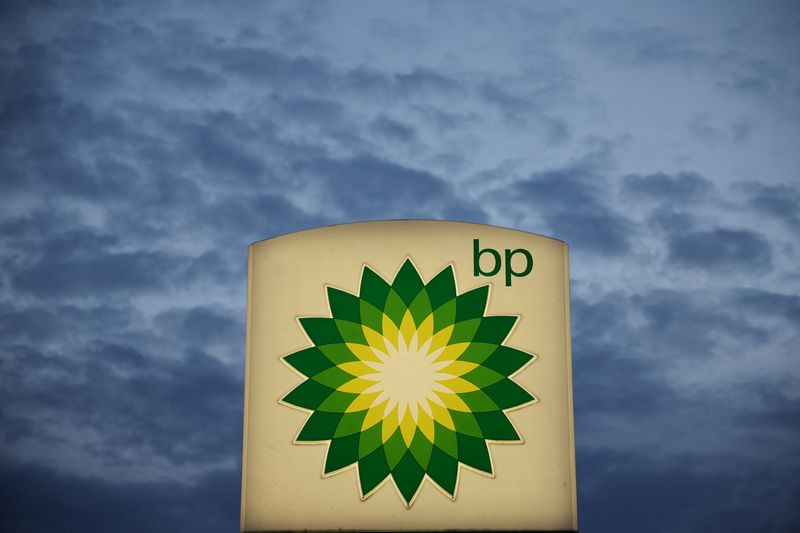By Christoph Steitz and Ron Bousso
FRANKFURT/LONDON (Reuters) - BP (NYSE:BP) plans to invest up to 10 billion euros ($10.7 billion) in low-carbon fuels, renewables and EV charging in Germany by the end of the decade to rival local power firms, as competition over the energy transition of Europe's largest economy intensifies.
Germany is one of a handful of countries BP is targeting to roll out at scale its strategy to shift away from fossil fuels towards low-carbon fuels and electricity.
At the heart of the German investment push are plans to expand BP's local network of electric vehicle (EV) fast chargers, decarbonise its refineries, and develop wind power. It is also weighing a local hub to import low-carbon hydrogen.
"We are talking about refineries, we are talking about the largest petrol station network in Germany, we are talking about existing business relationships, about strong brands," Patrick Wendeler, who chairs the board of BP Europe, told Reuters.
"These are all excellent assets that we can build on and that others do not have in this form. That is an advantage."
The 10 billion euros are new investments, which however include a 678 million euro payment BP has to make after being awarded in July two licences in Germany's recent offshore wind auction.
BP plans to spend $55 billion to $65 billion on its new transition businesses between 2023 and 2030, when the sum will equal its investment in oil and gas.
Former CEO Bernard Looney, who resigned late on Tuesday in a surprise move for failing to fully disclose details of past personal relationships with colleagues, told Reuters recently he would not further scale back his energy transition strategy after ceding some ground earlier this year.
The scale of investment is bound to challenge incumbent power utilities that are struggling to compete with the financial muscle of oil firms.
BP has been operating in Germany for more than a century through predecessor companies and employs about 4,000 people there, around 6% of its total.
Wendeler said there would be areas where BP would bring in new or retain existing expertise, declining to say whether the workforce would grow as a result of the investments.
BP recently opened a new office in Hamburg which will oversee its offshore wind expansion.
"And we will have areas where we will consolidate, because the existing energy system is one that is declining strongly," he said, adding crude oil capacity in Germany will drop further.
BP operates two refineries in Germany -- Lingen and Gelsenkirchen -- as well as Aral, Germany's largest petrol station network. It also provides more than 1,700 fast EV loading spots in Germany via its Aral brand.
By 2030, BP plans to have up to 20,000 charging spots, Wendeler said, hoping to cash in on the growing adoption of EV as carmakers from Volkswagen (ETR:VOWG_p) to BMW (ETR:BMWG) launch new models.
BP's award in Germany's offshore wind tender along with TotalEnergies (EPA:TTEF) made headlines, as the oil majors beat out incumbents such as RWE and Orsted (CSE:ORSTED).
BP will mainly use the electricity to satisfy its own demand in Germany.
Rivals bidders, including Shell (LON:SHEL), Orsted and RWE, have challenged the economic rationale behind BP's bid, which it says will generate returns of 6%-8%.
RWE, which itself is planning to spend 15 billion euros in Germany by 2030, dropped out of the race because it said the bidding had reached unsustainable levels, its CEO said.
Looney had defended the offshore wind bid, saying he expected strong demand for clean energy.

"Green electrons are going to be scarce in the 2030s. And by scarce we mean they'll be expensive."
($1 = 0.9326 euros)